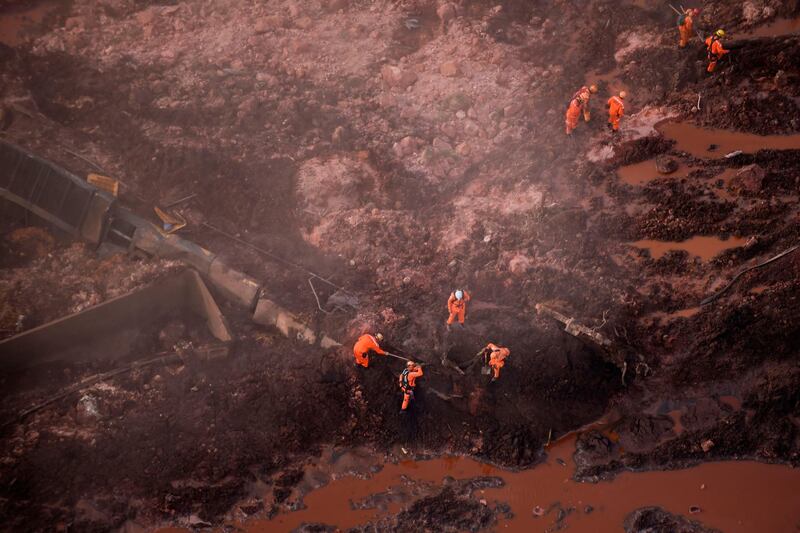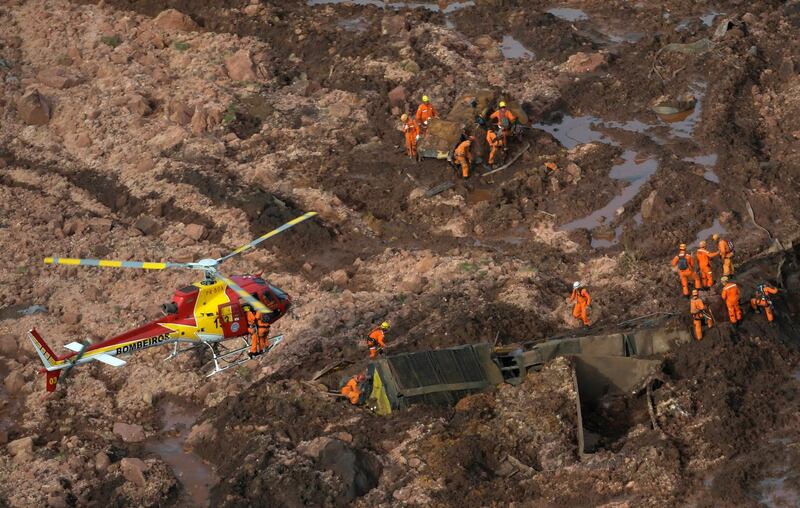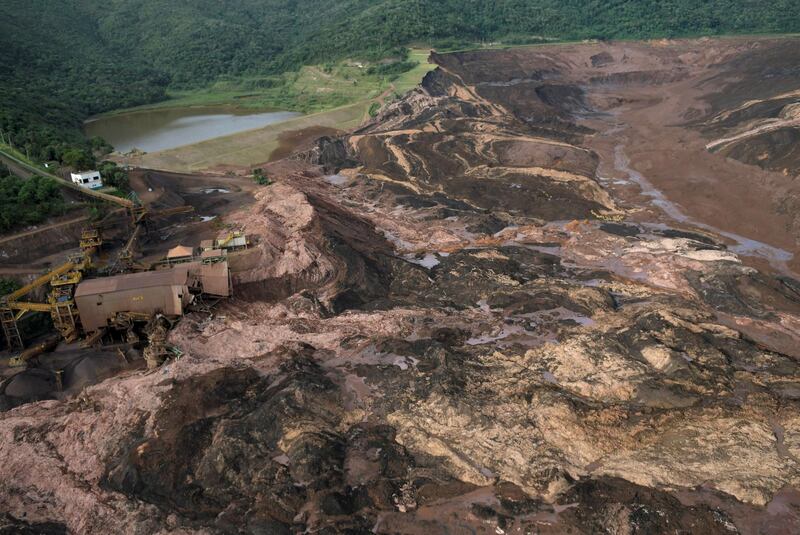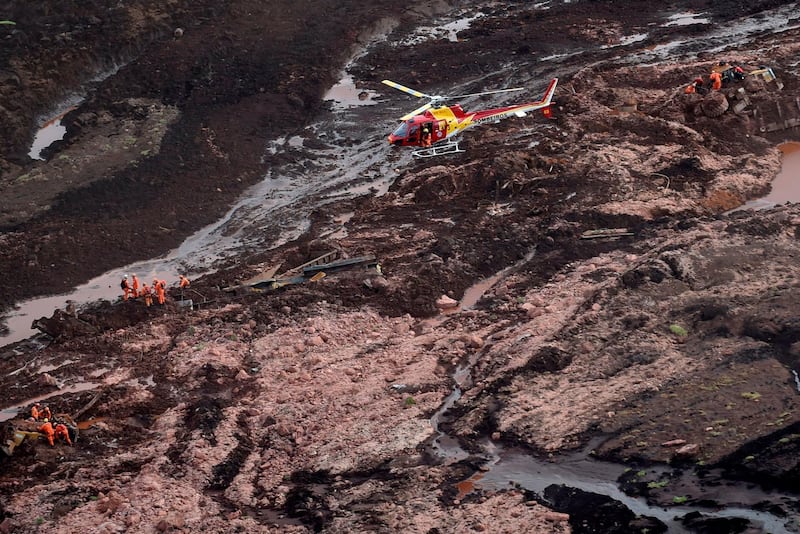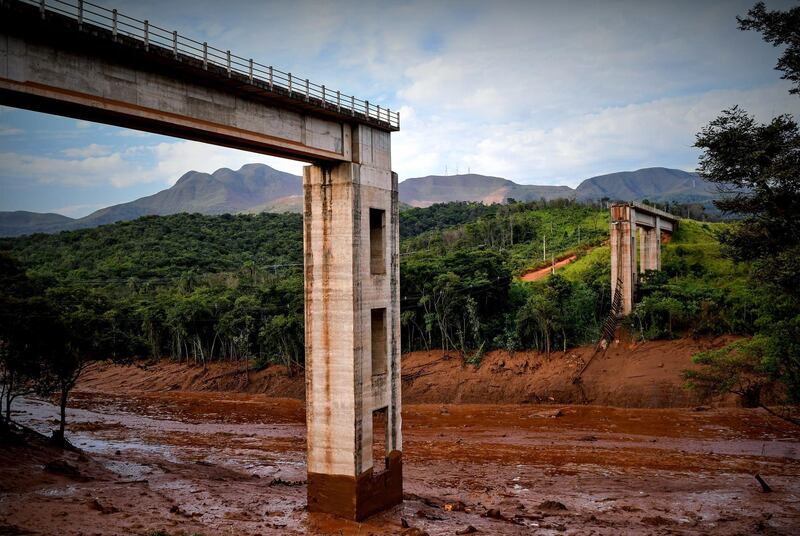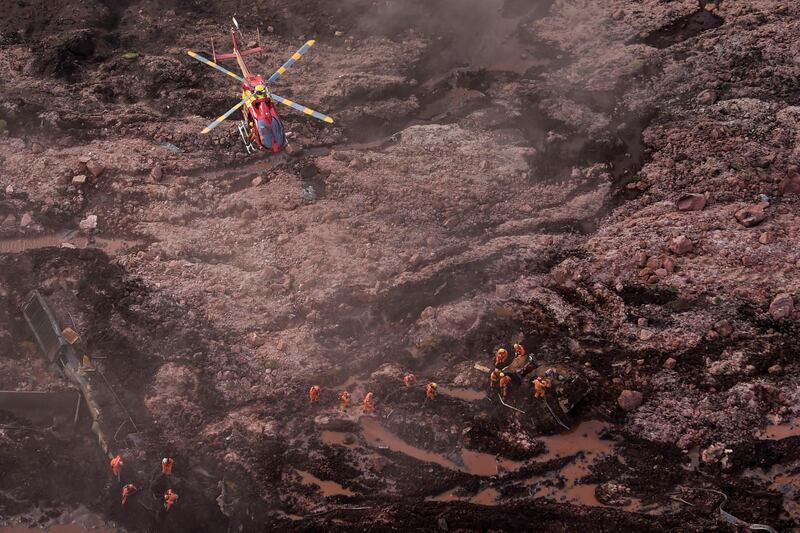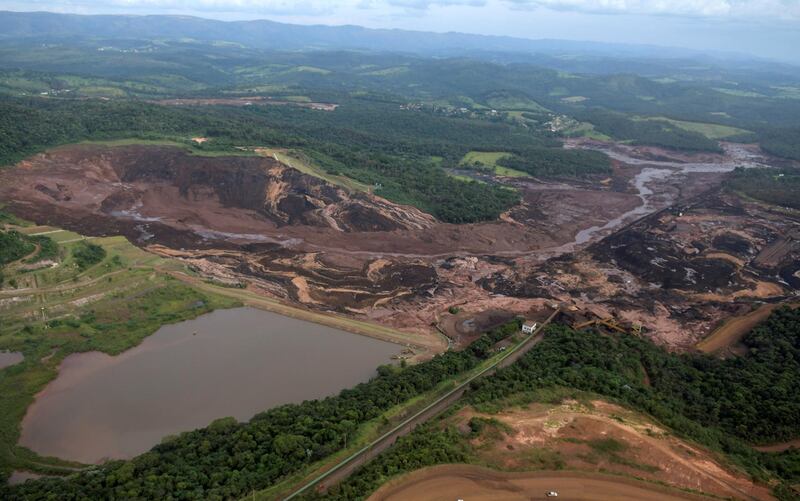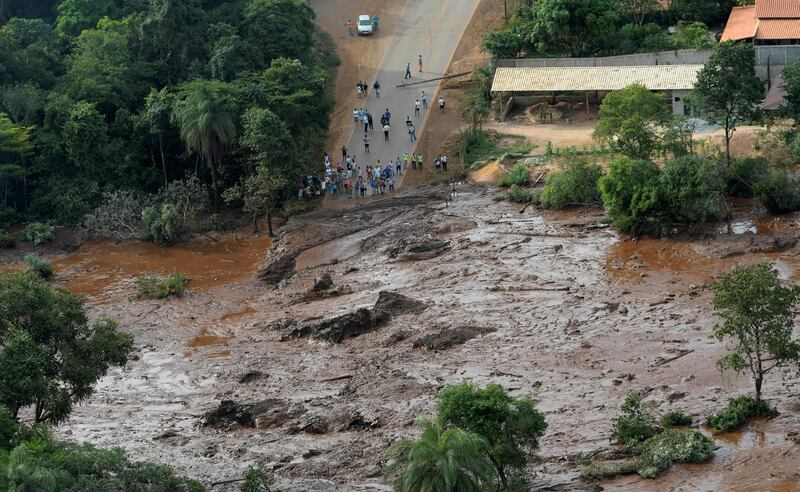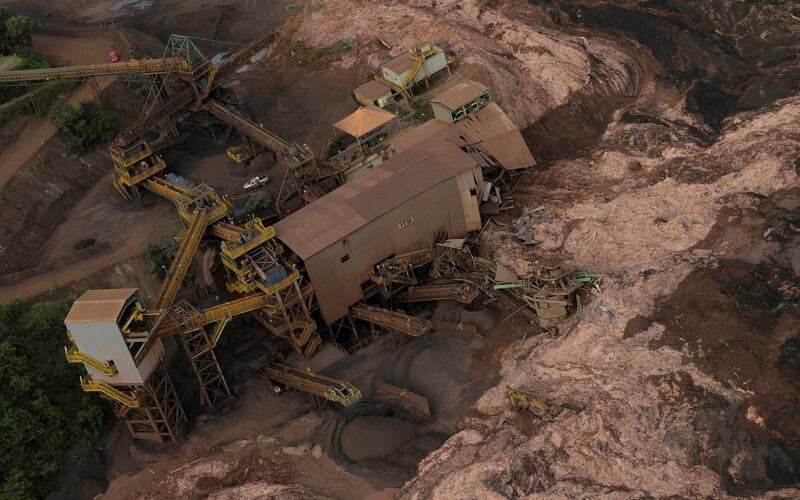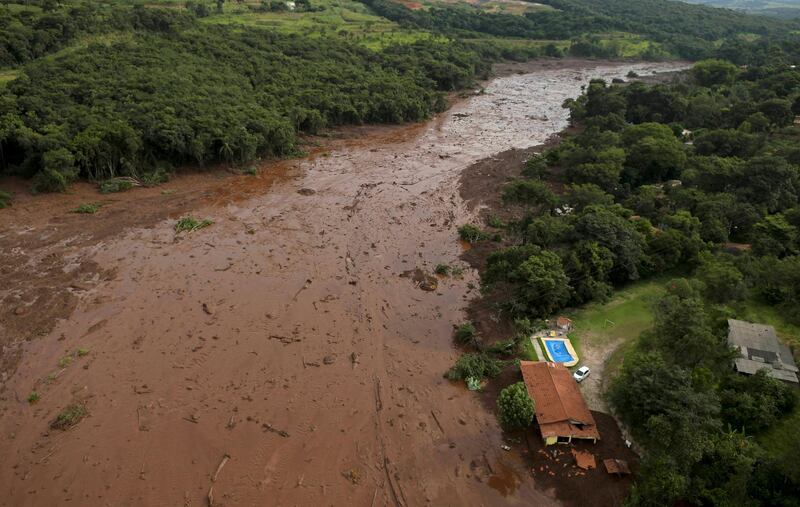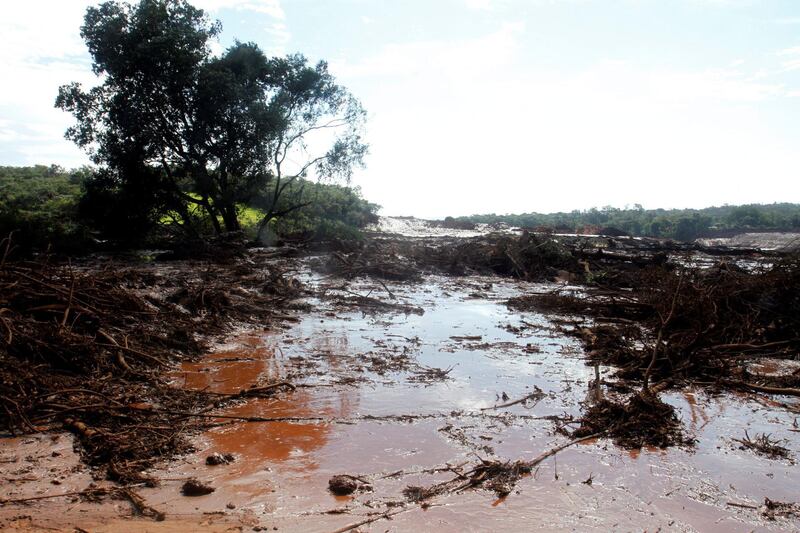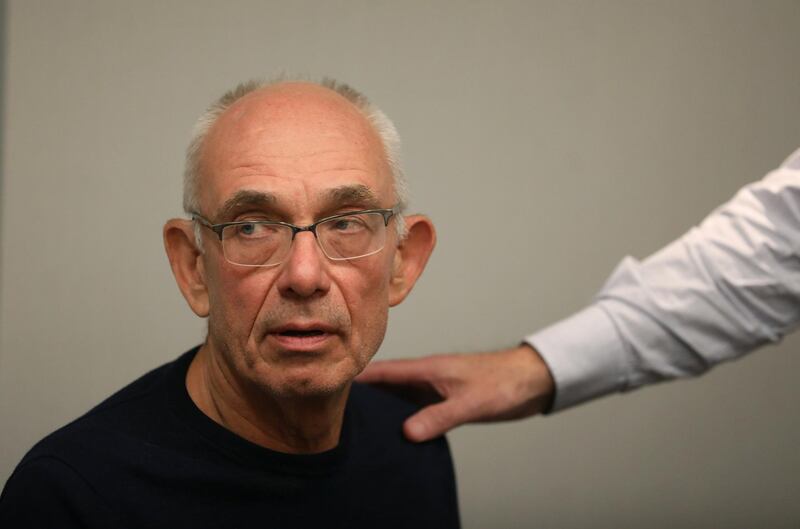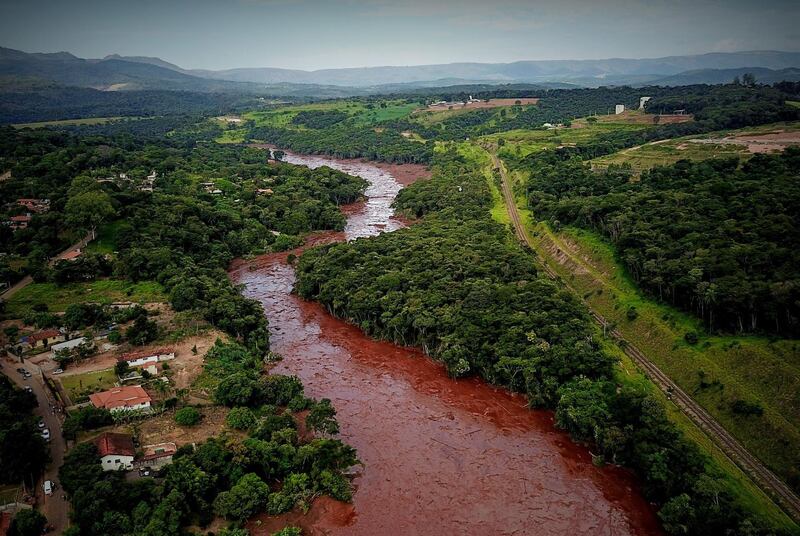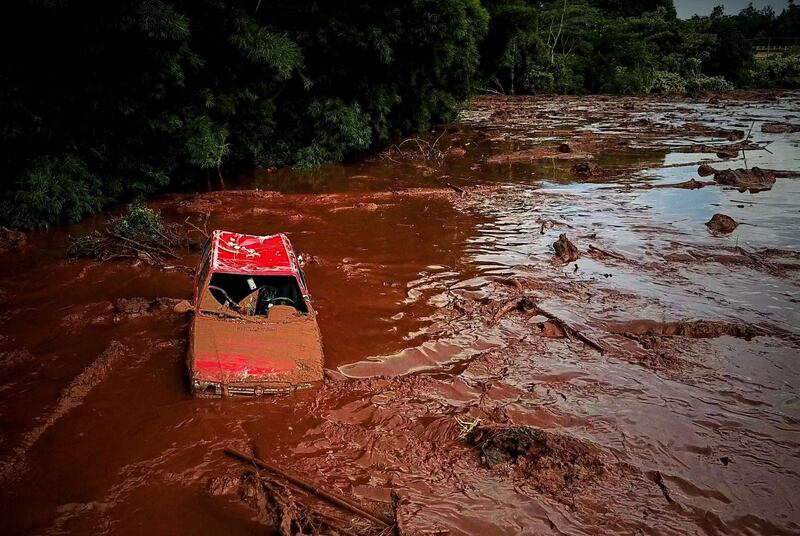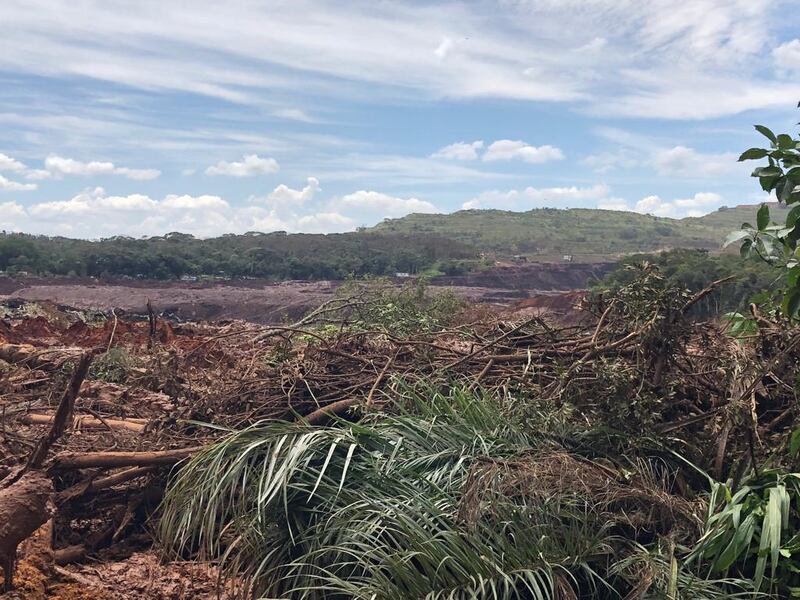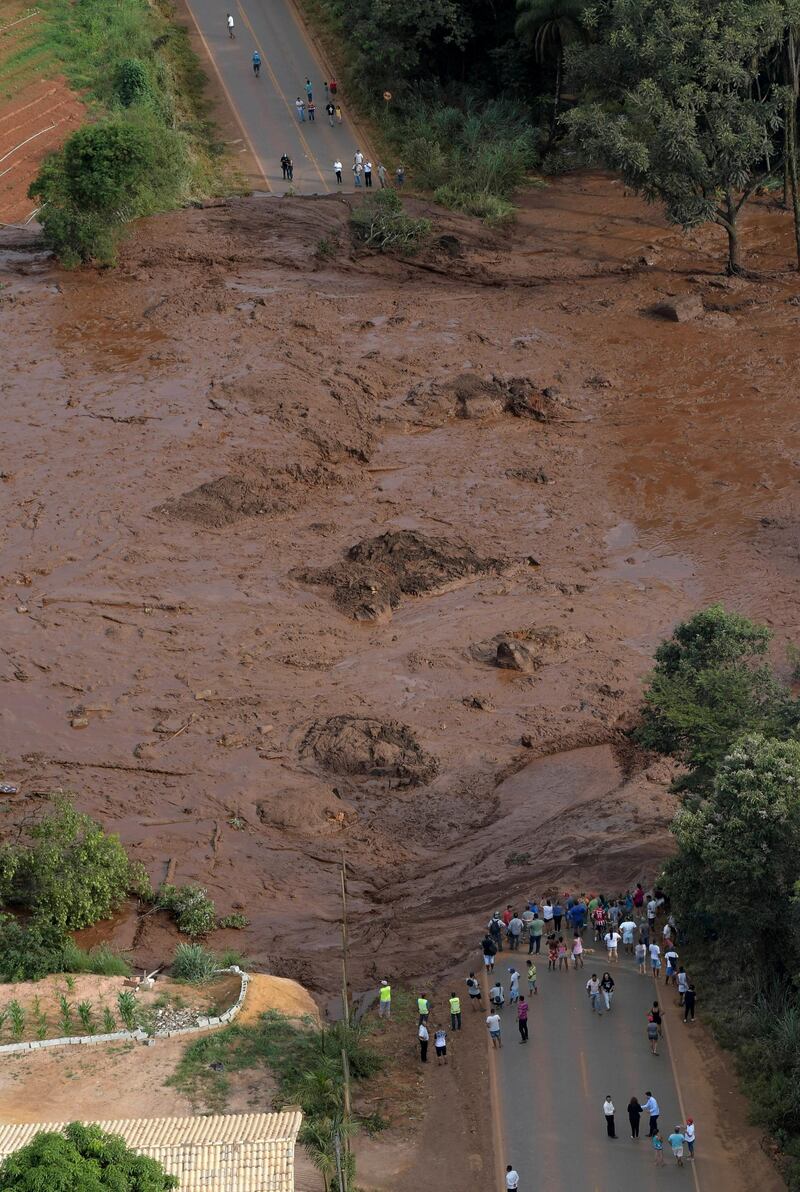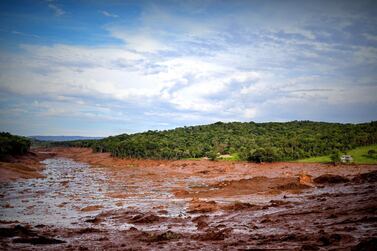With some 200 people still missing, Brazilian rescue teams pushed on with their search efforts on Saturday after a dam continuing mining by-products burst at an iron pit in the southeastern state of Minas Gerais.
Seven bodies were found in the hours after the collapse but the toll is expected to rise sharply, said Avimar de Melo Barcelos, the mayor of the hard-hit town of Brumadinho in the mining-intensive state just east of the capital of Brasilia.
Just over three years ago, Vale SA, the mine’s owner, was involved in a similar disaster nearby. The company’s chief executive, Fabio Schvartsman, said only one-third of the roughly 300 workers at the site had been accounted for. He said a torrent of sludge tore through the mine's offices, including a cafeteria during lunchtime.
President Jair Bolsonaro said he would visit Minas Gerais and fly over the disaster area over the weekend, after dispatching three ministers there on Friday.
The state is still recovering from the collapse in November 2015 of a larger dam that killed 19 people in Brazil's worst environmental disaster. That dam, owned by the Samarco Mineracao SA joint venture between Vale and BHP Group Ltd, buried a village and poured toxic waste into a major river.
Mr Schvartsman said the dam that burst on Friday at the Feijao iron mine was being decommissioned and its capacity was about a fifth of the total waste spilt at Samarco. He said equipment had shown the dam was stable on January 10 and it was too soon to say why it collapsed.
The Feijao mine is one of four in Vale's Paraoeba complex, which includes two processing plants and produced 26 million tonnes of iron ore in 2017, or about 7 per cent of Vale's total output, according to information on the company's website.
Mr Schvartsman declined to comment on how their output would be affected.
Operations at Samarco remain halted over new licensing, while the companies have worked to pay damages out of court, including an agreement that quashed a $5.31 billion (Dh 19.47 billion) civil lawsuit last year. Federal prosecutors suspended but have still not closed an even larger lawsuit.
